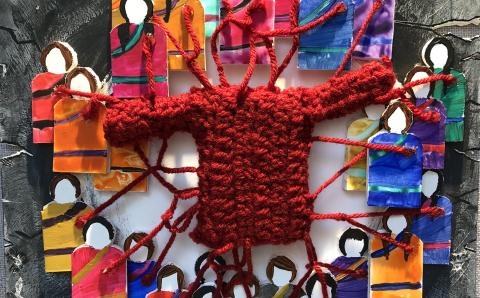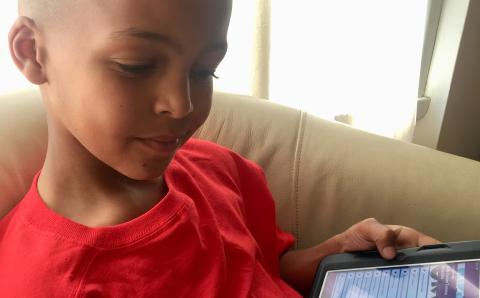We served as missionaries for two years in Bethania, an urban barrio in Guatemala City. One of our greatest hopes for our friends in Bethania is that they might believe, think, and act outside the myth of scarcity—and live instead into the liturgy of abundance. The Bible teaches that God is abundant and utterly reliable, but the myth of scarcity convinces people not to trust, not to hope, not to take hold of a purpose or passion for their life.
The myth of scarcity struck me poignantly in Bethania when a visiting group from Florida was telling wide-eyed fourth graders about their careers—what it’s like being a doctor, a secretary, an owner of a paint store. After one presentation, the maestra (teacher) stood up and said, “Thank you for coming and sharing with these kids about that which they will never be able to achieve.”
There was silence. Did she really just say that?
On one hand, she was right. The maestra had lived in Bethania for years and had seen the myth of scarcity played out. The majority of kids don’t move up and out. The culture is characterized by fear, anxiety, and survival. Why bother dreaming about what can't be achieved?
The issue is not only about achievement, though. It’s about hope. When Lia’s life is marked by scarcity, crisis, and extortion by gangs, she learns not to hope for good things in life. There are no systems in place to bring about the justice or peace we want to see. Hope comes so hard and flees so quickly. For David, an orphan who has no loving arms to run to, who was forced to kill at age 10, the darkness of what is seen shrouds the hopeful unseen. For Teresa, who has no money to flee her community after being raped, whose home was burned down and whose husband was shot, the darkness of what is seen shrouds the hopeful unseen.
Why is there no help for them? Where is the church? How might we hope-bringers respond in a context where threats and lies and scarcity choke out hope?
First, with honesty. We can cry out with raw emotion and lament, like Habakkuk, “How long, O Lord? Why this, God?”
Second, we need to remember the gospel and have hope like Jeremiah does in Lamentations 3:21-22, "Yet this I call to mind and therefore I have hope: Because of the Lᴏʀᴅ’s great love we are not consumed, for his compassions never fail.”
Christians need hope. Even in the midst of conflict and turmoil, God calls us to subscribe to a reality of love and justice and peace because Jesus has overcome the darkness of the seen. We need to call this truth to mind daily and bring this good gospel to those who have been wounded and paralyzed by the myth of scarcity that breeds hopelessness.
How true is it, then, what the maestra said? In terms of the seen reality, she’s right. But the unseen truth tells another story: even if Bethania’s kids do not achieve worldly success, if they can live in hope that springs from knowing God’s love and salvation, they will live in true abundance.
Hurt, corruption, poverty, and injustice—these things actually illuminate the gospel. They show us how much we need the gospel and how the church needs to bring that gospel—the real hope—into dark situations. It’s a tall task. Yet this we call to mind, and therefore we have hope.
About the Author
AJ Westendorp is a connector of people from Holland, Mich., with a heart for his wife, for Guatemala, for urban neighborhoods, and for a shared meal.








